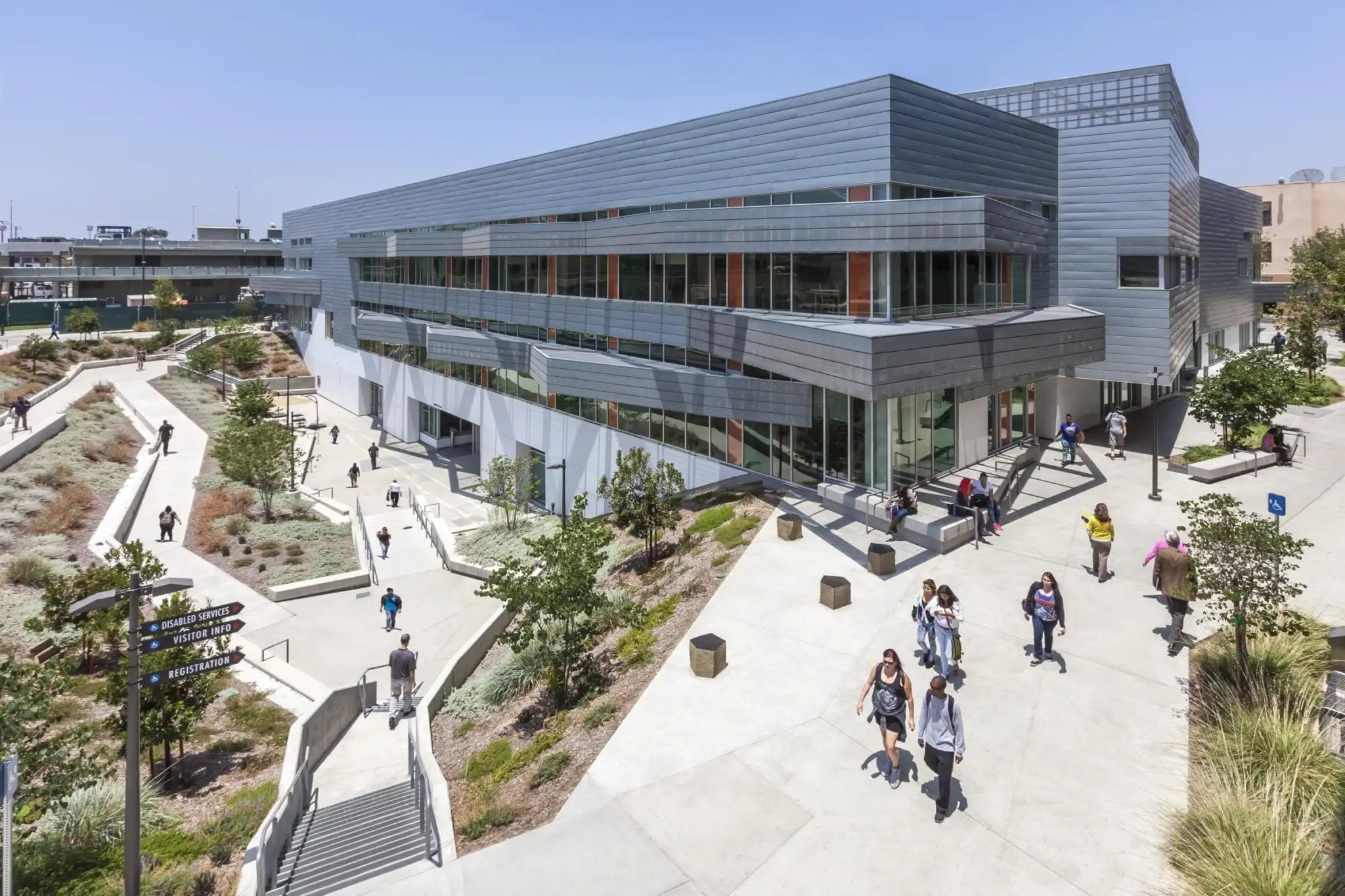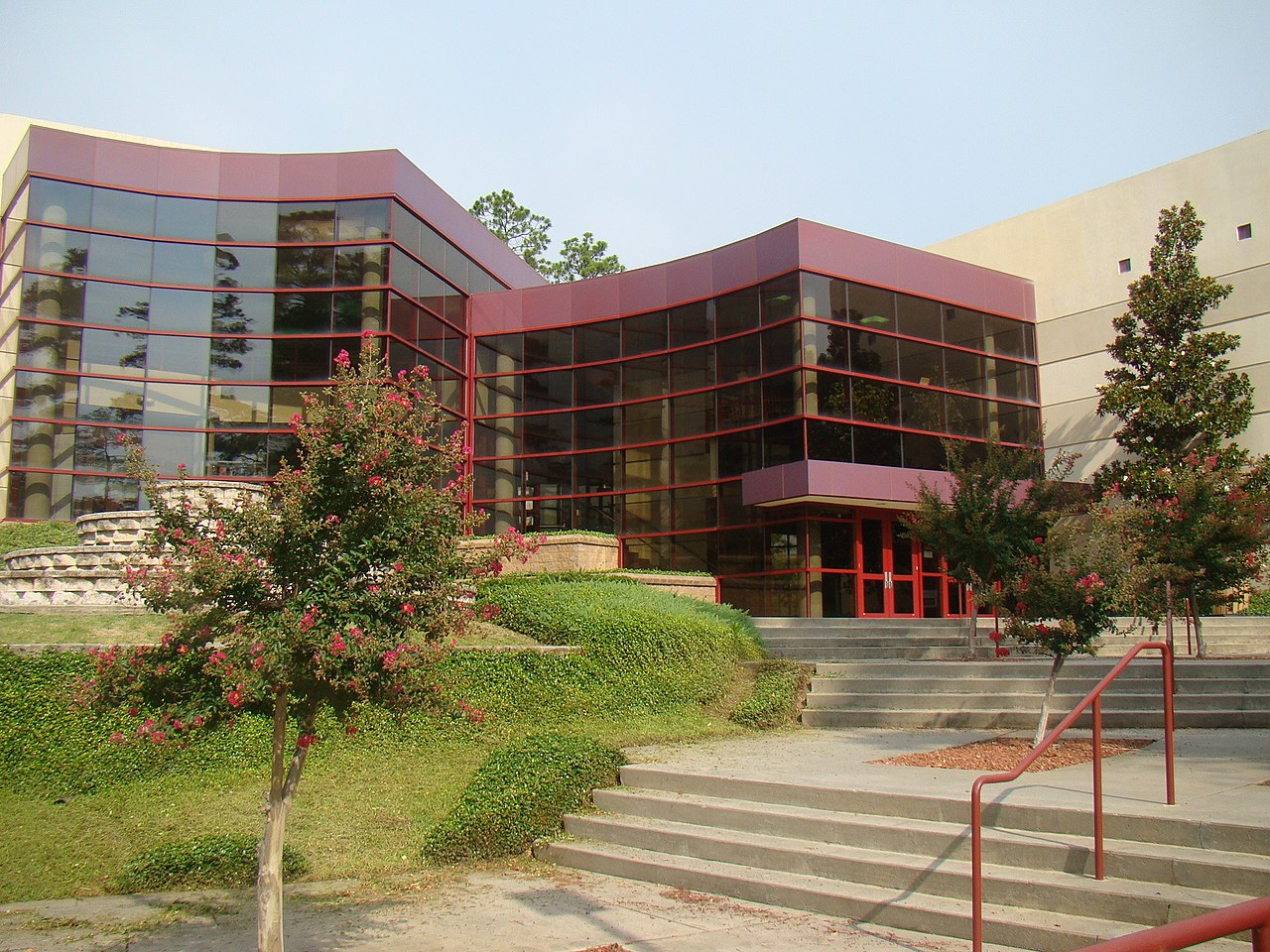Technical college is crucial in shaping the careers of many individuals. They offer a focused education path, leading directly to the workforce through skilled trades programs. Unlike traditional universities, these programs are much shorter, lasting from nine months to two years. This allows students to acquire practical skills swiftly and at a lower cost.
These colleges have lower tuition fees, which means students graduate with less debt. The smaller class sizes ensure personalized attention from instructors, creating an ideal learning environment. Moreover, technical colleges are designed to meet the employment needs of local employers, preparing students for the job market upon graduation.
Technical colleges invest in modern equipment and emphasize hands-on learning. This approach empowers students to gain industry-relevant skills. By choosing a technical college, you’re not just getting an education; you’re unlocking your potential for a successful career in a skilled trade.
Key Takeaways
- Technical colleges offer programs that typically last between nine months and two years.
- Graduates often incur less student debt than those from traditional universities.
- Smaller class sizes foster direct interactions with instructors, enhancing learning experiences.
- Programs are tailored to meet local employment needs, increasing job readiness.
- Students gain practical skills using industry-standard equipment to prepare for their careers.
- Career services are robust, aiding in job placement through workshops and job fairs.
Understanding Technical College and Their Importance
Technical colleges are crucial in the UK’s vocational education scene. They offer specialized training aimed at preparing students for specific careers. By focusing on practical learning, these colleges ensure graduates are workforce-ready immediately upon program completion.
These institutions are key workforce development centers, boosting local economies. They work closely with over 400 employers and universities to ensure their training meets industry needs. For example, UTCs have attracted around 19,000 students across 44 colleges in England, highlighting their growing impact.
The UKCES Employer Skills Survey shows a sharp rise in job vacancies due to skills gaps. Vacancies jumped from 91,000 in 2011 to 209,000 in 2015, underscoring the critical role of technical colleges. The Covid-19 pandemic has accelerated the need for digital skills, making UTC education more relevant than ever.
| Statistic | Data |
|---|---|
| Total University Technical Colleges (UTCs) | 44 |
| Students in UTCs | 19,000 |
| Supporting Employers and Universities | 400+ |
| UTC Openings | 48 (with more planned) |
| Vacancies Due to Skills Shortages (2015) | 209,000 |
| Skills Mismatch (CIPD Report) | 37% over-skilled, 12% under-skilled |
UTCs focus on employer engagement, emphasizing project-based learning. This approach develops both technical and personal skills. The high transition rates to further education, apprenticeships, or employment show the programs’ effectiveness.
Why Choose a Technical College for Your Education?
Opting for a technical college offers unique benefits designed to support students throughout their academic path. The intimate nature of smaller class sizes ensures personalized attention, crucial for students to excel. Many graduates from IBMC College underscore the significance of this close-knit learning environment in their educational success.
Cost-effectiveness is a major draw for many looking at their educational options. Public four-year universities come with hefty price tags, with students often spending about $10,800 annually on living expenses. Conversely, technical colleges enable students to stay at home, thus cutting down on these costs significantly.
Technical colleges stand out for their flexibility, offering new sessions every five weeks, like those at IBMC College. This setup allows students to start their studies at a time that fits their life. Moreover, these institutions focus on a high school diploma or GED for admission, rather than past academic achievements. This approach helps alleviate stress related to grades, catering to students from varied backgrounds.
At the core of a technical college or vocational school lies a career-focused education. The curriculum is crafted in collaboration with industry experts, ensuring students gain pertinent skills. Instructors bring extensive industry knowledge, offering networking chances and aiding graduates in securing jobs. These factors significantly boost the employability of graduates in specialized fields.
The focus on practical, hands-on training equips students for swift entry into competitive sectors. With detailed programs and comprehensive career development tools, a career training institute prepares individuals for success in their chosen fields.
The Benefits of Vocational Education
Vocational education offers a direct path to employment, providing significant advantages for those ready to start their careers. It emphasizes hands-on experience, preparing students with skills directly relevant to their chosen fields. This approach ensures program completion in just four to six months, a fraction of the time needed for traditional college programs.
Another key advantage is its cost-effectiveness. Vocational programs typically require less financial outlay than traditional universities, reducing the burden of student debt. Their flexible schedules also support those juggling work or family duties, making them ideal for non-traditional students.
The learning environment is enriched by diverse student interactions, offering a broad cultural experience. Graduates of these programs seamlessly transition into the workforce, thanks to their specialized training and practical skills. Employers value these qualifications, seeking candidates who can hit the ground running.
- Shorter program lengths allow for quicker entry into the workforce.
- Hands-on training equips students with job-ready skills.
- Flexible schedules accommodate students with various responsibilities.
- Diverse cultural interactions enhance personal development.
- Reduced overall costs compared to traditional academic institutions.
Vocational education is increasingly favored by individuals aiming to acquire technical skills in high demand. It offers adaptable programs that prepare students for diverse professions within a supportive learning environment. This approach not only equips students with practical skills but also fosters a collaborative atmosphere that enhances learning.
Hands-On Learning at a Technical College
A hands-on learning institution emphasizes practical experiences to significantly boost students’ skills and knowledge. Technical colleges combine classroom theories with real-world applications, essential for those in skilled trades programs. This approach creates an environment where learners can engage in practical learning experiences, preparing them for their future careers.
Apprenticeships are a key component, offering one-on-one training between instructors and students. Each apprentice progresses at their own pace, ensuring they thoroughly build their skills. This method not only promotes deeper understanding but also allows students to explore various learning styles, including visual, auditory, and kinesthetic approaches.
Group projects are prevalent in these programs, promoting interaction and teamwork among peers. Through discussions and collaboration, students gain from diverse perspectives, enriching their educational experience. Instructors, with industry backgrounds, provide insights based on real-world experience, enhancing the educational process with their expertise.
Hands-on experiences include lab work, simulations, field trips, and internships. These activities help students practice critical thinking and apply their knowledge effectively, giving them a competitive edge when job hunting. Emphasis on learning from mistakes equips students with the resilience needed to thrive in challenging environments.
Technical colleges boast state-of-the-art facilities and equipment, ensuring students work with industry-standard tools. Government funding typically covers most program costs, making education accessible and providing support even after graduation. Graduates leave with specialized skills, leading to higher employment rates and salaries compared to traditional university graduates.
For more detailed informationon technical colleges, including graduation rates and potential student debt, refer to their official websites
| Feature | Technical College | Traditional University |
|---|---|---|
| Learning Style | Hands-on and practical | Theoretical focus |
| Class Size | Smaller, personalized | Larger, less interaction |
| Duration of Programs | Varies from a few months to four years | Typically four years |
| Employment Rates | Higher for graduates | Variable |
| Salary Potential | Generally higher due to specialized skills | Depends on field |

Exploring Different Programs Available at Technical Colleges
Technical colleges offer a broad spectrum of programs tailored for various industries. These programs, ranging from engineering to healthcare, provide specialized training for practical application in the workforce. Vocational school courses are ideal for those seeking swift entry into the job market, offering hands-on experience.
London South Bank Technical College showcases a diverse range of vocational and degree-ready options. These include Level 3 to 4 courses that lead to degree programs and apprenticeships at LSBU. The college’s construction sector courses cover vital skills in areas like:
- Brick Work
- Plumbing
- Electrical Installation
- Painting and Decorating
The Computing and IT division at the college offers vocational school courses, including Introductory Diplomas in Information Technology and specialized certifications in tech fields. These programs are designed to be flexible, catering to both beginners and those looking to enhance their skills.
Dental education is highlighted with apprenticeships for Dental Nurses, Orthodontic Therapists, and Dental Technology at Level 5. Creative and Digital Industries are also addressed, featuring programs such as:
- Photography
- Film and TV
- Games Design
- E-Sports
- Graphic Design
Engineering courses are prominent, providing crucial training for adults and offering pathways to higher education diplomas. These programs aim to equip students with the skills essential in today’s dynamic workforce.
Technical colleges attract students seeking vocational education, with a notable increase in participation. These programs are generally shorter than traditional degrees, often completed in less than two years. This allows students to swiftly enter skilled trades, where salaries vary significantly by profession.
| Program Area | Course Offerings | Typical Duration | Potential Salary Range |
|---|---|---|---|
| Construction | Brick Work, Plumbing, Electrical Installation | 1-2 years | $52,920 – $77,090 |
| Computing & IT | Introductory Diplomas, Network Engineering | 1-2 years | $52,920 – $77,090 |
| Dental | Apprenticeships for Dental Nurses | 1-2 years | $52,920 – $77,090 |
| Creative Industries | Photography, Graphic Design | 1-2 years | $52,920 – $77,090 |
| Engineering | Access to HE Diploma, Level 2 Engineering | 1-2 years | $52,920 – $77,090 |
With such a diverse array of options, technical colleges are effectively preparing students for immediate employment and further education in skilled trades.
How to Choose the Right Trade School for Your Career Goals
Choosing the right trade school is crucial for achieving your career goals. A well-informed trade school selection process requires careful consideration of several factors. Start by checking the school’s accreditation status. Accreditation ensures the quality of education and is crucial for future employment prospects.
Next, look into the programs available. Vocational education choices vary widely, covering fields like healthcare, automotive, and technical industries. Talking to former students can provide valuable insights into their experiences and outcomes. Their stories can highlight the effectiveness of the training, the quality of the faculty, and the learning environment.

Financial considerations are also key to avoid future financial strain. Research financial aid options such as scholarships, grants, and loans to help fund your education. Utilize resources like TrainingProvidersResults.gov to compare costs, completion rates, and employment outcomes, ensuring your investment is worthwhile.
Networking can also be beneficial. Many career training institutes have established connections with local employers, offering part-time jobs or internships. Don’t forget to ask about career coaching services that can boost your job prospects after graduation.
Make sure the program matches your career goals. Visiting campuses to see the facilities and resources for hands-on learning is a good idea. Thorough research leads to a confident trade school choice, setting you up for a successful career path.
| Criteria | Key Considerations |
|---|---|
| Accreditation | Verify if the institute is accredited for quality education. |
| Programs Offered | Explore the specific training programs available and their relevance to your career goals. |
| Former Student Feedback | Gather opinions on program effectiveness and faculty support from alumni. |
| Financial Aid Options | Investigate scholarships, grants, and loan options to finance education. |
| Networking Opportunities | Check for connections to local employers and available job placement services. |
Technical College vs. Traditional University: Pros and Cons
Choosing between a technical college and a traditional university can greatly affect your future. It’s crucial to understand the benefits of technical colleges to make a well-informed choice. These institutions offer vocational education with programs lasting from a few months to two years. This allows students to enter the workforce faster than those in traditional universities, which typically require four or more years.
Cost is a significant factor in the decision-making process. Technical colleges are generally more affordable due to their shorter programs and fewer campus facilities. This can lead to lower expenses and less reliance on student loans. However, universities often provide extensive financial aid, including scholarships and grants, which technical colleges might not offer.
Admissions requirements can vary significantly. Technical colleges usually require only a high school diploma or GED and an age limit, making entry easier. In contrast, universities have more stringent admissions criteria, often including standardized test scores or additional documentation.
Technical colleges offer flexibility in scheduling, catering to working individuals with evening or weekend classes. While universities provide a wide range of extracurricular activities and networking opportunities, they typically require a larger time commitment. This can limit part-time employment for students.
When it comes to career advancement, technical colleges prepare students for high-demand jobs in specialized fields like automotive technology or electrical work. However, graduates may find their salary potential capped compared to those with bachelor’s or advanced degrees. The job market for technical school graduates can be competitive.
The decision ultimately depends on personal goals and career aspirations. By comparing the benefits of technical colleges with those of traditional universities, students can choose an educational path that aligns with their professional goals.
| Criteria | Technical Colleges | Traditional Universities |
|---|---|---|
| Program Duration | Months to 2 years | 4 years or more |
| Tuition Costs | Generally lower | Generally higher |
| Admissions Process | Simple; high school diploma required | Complex; standardized tests may be needed |
| Flexibility | Evening/weekend classes available | Structured schedules with fewer flexible options |
| Financial Aid | Limited options | Extensive financial aid packages available |
| Job Market Opportunities | High demand in specialized trades | Broader job options, but higher competition |
Getting Started: Application Process for Technical College
The application process for technical colleges varies but generally includes several key steps. These steps ensure prospective students are well-prepared for vocational education. Students start by submitting an application form and necessary academic transcripts. Some colleges may also require an interview as part of the process.
Applicants must gather all required documents well in advance. This includes certifications of previous educational achievements, recommendation letters, and personal statements. Many technical colleges offer virtual events to guide applicants through the process, detailing admission requirements and simplifying the application.
- Submit completed technical college application form
- Provide academic transcripts
- Participate in interviews if required
- Contact Admissions Team with questions or confusions
- Formal acceptance needed to secure enrollment
After submitting the application, feedback is usually received within ten working days. If an interview is part of the process, an offer is often sent within five working days afterward. Admission decisions are communicated via email, ensuring efficient communication with all applicants.
Given that many courses are oversubscribed, a competitive edge is crucial during the application process. Exploring the technical college offerings and their specialisms is beneficial. Many schools provide unique opportunities tailored to industry needs.
| Step | Description | Timeframe |
|---|---|---|
| Application Submission | Complete and submit the application form with all necessary documents. | Ongoing |
| Feedback | Receive information about the status of your application. | Within 10 working days |
| Interview | Attend a formal interview if required by the institution. | Scheduled as needed |
| Offer Notification | Notification of a place offer sent via email. | Within 5 working days post-interview |
| Joining Day | Attend joining day before the term begins. | Before the start of September term |
What to Expect in a Skilled Trades Program
Students entering skilled trades programs can anticipate a detailed learning journey. This journey is designed to equip them with the skills needed for various fields. It combines technical training with hands-on experience. The aim is to ready individuals for thriving careers in trades that are in high demand.
Curriculum Overview
The curriculum typically includes both foundational and specialized courses. Students delve into theoretical subjects and apply them practically. This approach solidifies their grasp of complex concepts. Core subjects may cover:
- Safety practices and regulations
- Blueprint reading and technical drawings
- Hands-on skill development
- Industry-specific technologies and methodologies
This structured curriculum ensures students gain the skills to excel in their trades. It also prepares them for a well-rounded education.
Practical Learning Opportunities
Hands-on experience is crucial in skilled trades programs. Students enjoy practical learning through various means:
- Internship programs with industry partners
- Simulation labs that mimic real-world settings
- Apprenticeships for on-the-job training under seasoned professionals
These experiences boost learning, facilitate networking, and aid in job placement after graduation. By finishing a skilled trades program, graduates are well-prepared to tackle the workforce with confidence.
| Aspect | Details |
|---|---|
| Completion Time | Typically less than two years, with some programs as short as 3-7 weeks |
| Enrollment | Increasing trends in trade schools compared to declining undergraduate enrollment |
| Cost | Average cost of skilled trades training is around $33,000, significantly less than a bachelor’s degree |
| Debt Levels | Graduates often leave with lower or no student debt |
| Job Placement | 85% of trade school students hold paid positions during their studies |
Networking and Job Opportunities Through Technical College
Technical colleges are key in linking education with the job world through networking. They host events like employer talks, mock interviews, and career fairs to connect students with professionals. These events boost networking at technical colleges, helping students forge important ties with potential employers.
These professional connections offer students deep insights into the job market, crucial skills, and access to exclusive job openings. Technical colleges focus on sectors like healthcare, IT, construction, and digital fields, preparing students with the right qualifications.

Collaboration between technical colleges and businesses is crucial for updating the curriculum to match industry needs. This partnership leads to career training that meets current job requirements. Smaller class sizes also provide a more individualized learning experience, boosting career development chances.
Technical colleges offer significant job placement support. Career counseling and resume assistance help graduates smoothly enter the workforce. Instructors with industry experience enrich the learning process, providing students with knowledge and mentorship for success.
With more Institutes of Technology across England focusing on technical education, the job market is seeing a surge in skilled professionals. This trend perfectly matches the workforce’s need, improving students’ career paths and financial futures.
The Role of a Career Training Institute in Workforce Development
A career training institute plays a crucial role in workforce development. It equips individuals with the skills needed to excel in today’s competitive job market. These institutes align their training with local industry demands, creating a workforce ready to meet employer needs.
They collaborate with organizations like the Education and Training Foundation and the Association of Colleges. These partnerships aim to improve apprenticeship quality and enhance workforce capability. Through a structured approach, they address skills gaps in sectors like Construction and Information Technology.
Moreover, career training institutes provide tailored resources for apprentices and employers. Tools and online training materials significantly improve learner support and assessment methods.
- Enhanced line manager support for apprentices.
- Development of diverse training solutions to address industry needs.
- Focus on mentorship and support for apprentices with special educational needs.
Businesses are encouraged to invest in apprenticeships, which uplifts employee skills and motivation. This investment also boosts business productivity. With standards in apprenticeships, quality and practical skills are emphasized. This allows participants to advance in their qualifications, including higher education degrees.
Degree apprenticeships are becoming more popular as a practical way for employees and employers to upskill. Training delivery is flexible, catering to various business needs. This promotes staff retention and well-being.
Conclusion
Technical colleges offer crucial educational pathways that align with the current job market’s needs. They focus on practical skills and hands-on experience, providing a distinct advantage for students looking for vocational training benefits. These institutions welcome a diverse range of applicants, requiring only a General Education Development (G.E.D) certificate or a high school diploma for admission.
The benefits of vocational education are numerous and clear. Tailored programs prepare students for in-demand careers, equipping them to face industry challenges. This is supported by strong networks and job placement resources. The choice to attend a technical college can significantly impact one’s career, as detailed in this essential guide.
As the workforce evolves, technical colleges will continue to play a vital role in producing skilled individuals. They provide targeted education that prepares students for the competitive job market. By engaging with vocational education, students open doors to promising career opportunities, paving the way for a secure future.
FAQ
What kind of programs are available at technical college?
Technical colleges provide a broad spectrum of programs across fields like engineering, healthcare, IT, and the arts. These programs are designed to meet industry demands. Students can choose from certificates or diplomas, tailored to various career goals and educational backgrounds.
How does vocational education differ from traditional university education?
Vocational education focuses on practical training, preparing students for immediate employment in specific trades. It differs from traditional universities, which often emphasize broader academic studies. Vocational schools offer direct career paths through hands-on learning and industry experiences.
What is the typical application process for a technical college?
The application process involves submitting an application form, academic transcripts, and possibly an interview. Prospective students should gather necessary documents and utilize college guidance. Virtual events can help clarify admission requirements.
Are there job placement services available for graduates?
Yes, technical colleges and vocational schools offer extensive job placement services. These include career fairs, employer talks, and mock interviews. Such resources connect students with industry professionals, aiding in securing jobs after graduation.
What are the advantages of choosing a skilled trades program?
Skilled trades programs are shorter, cost-effective, and focus on practical training. They allow students to gain hands-on experience while earning certifications. Graduates often enjoy high employability and competitive salaries, making these programs appealing career choices.
How can I choose the right technical college for my career goals?
When picking a trade school, look at accreditation, industry partnerships, and program specifics. Research outcomes, talk to alumni, and evaluate facilities to ensure the school meets your career and learning needs.
What types of financial aid are available for vocational education?
Vocational education offers federal grants, scholarships, work-study programs, and loans. Technical colleges guide students on available resources, helping them find aid for education costs.
Do technical colleges offer distance learning options?
Yes, many technical colleges and institutes now offer distance learning. This allows students to complete coursework online while still gaining practical skills through hands-on training.
What employment support can I expect from technical colleges after I graduate?
Technical colleges provide ongoing employment support after graduation. This includes resume workshops, interview prep, and job board access. Some colleges also maintain business connections, helping alumni find jobs.
 dailyblogger.xyz
dailyblogger.xyz



